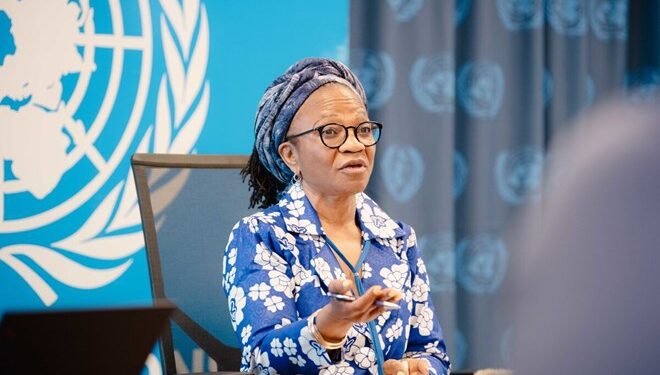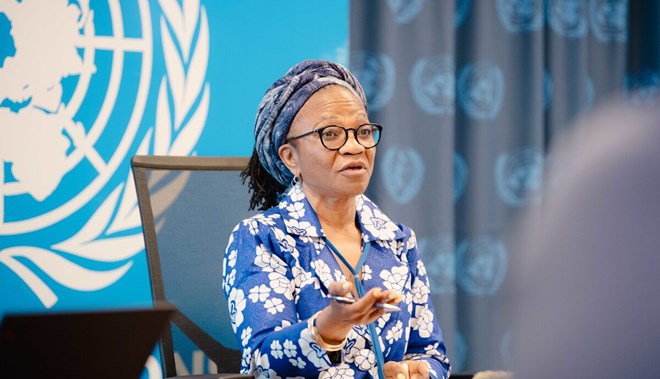MOGADISHU, Somalia – The Nationwide Union of Somali Journalists (NUSOJ) has applauded the United Nations’ name for Somalia’s proposed Official Info Invoice (OIB) to align with worldwide human rights requirements.
In her handle to the 57th Session of the UN Human Rights Council, Ms. Isha Dyfan, UN Unbiased Knowledgeable on the Scenario of Human Rights in Somalia, described the OIB—presently into consideration—as a promising improvement.
Ms. Dyfan urged the Federal Authorities of Somalia to make sure that the Invoice adheres to worldwide human rights requirements, emphasizing the necessity for all Somali residents to entry info held by public establishments. She cautioned towards overly broad provisions that would undermine the Legislation’s targets.
“Whereas the Official Info Invoice may be seen as a optimistic step, I name upon the Federal Authorities to make sure that it absolutely aligns with worldwide human rights requirements. It’s important that the Invoice successfully offers all Somali residents entry to info held by public establishments, with out overly broad provisions that would hinder its targets,” Dyfan stated.
After advocating for the renewal of the UN Unbiased Knowledgeable’s mandate, NUSOJ welcomed the unanimous adoption of Draft Decision A/HRC/57/L.15, which focuses on offering help to Somalia within the realm of human rights.
NUSOJ has joined worldwide voices expressing critical issues in regards to the proposed OIB, cautioning that it poses a major risk to Somalia’s democratic foundations. The invoice, which the Council of Ministers accredited in March 2024, is now awaiting endorsement within the Federal Parliament.
The laws has drawn worldwide criticism for its potential to limit entry to info, a proper enshrined in Somalia’s structure and worldwide human rights requirements. Its broad exemptions may permit the federal government to categorise info as confidential or associated to nationwide safety, probably missing ample oversight or justification.
A coalition of organizations, together with the Worldwide Federation of Journalists (IFJ), Reporters With out Borders (RSF), and the African Freedom of Info Centre (AFIC), is urging the Somali authorities to retract the invoice. They name for an intensive and inclusive evaluate course of that engages all stakeholders, making certain the laws champions transparency and aligns with the African Union Mannequin Legislation on Entry to Info.
The invoice’s clandestine drafting, carried out with out public or stakeholder consultations, has drawn sharp criticism. This method undermines its legitimacy and threatens to foster a tradition of secrecy inside Somalia’s public sector, probably paving the best way for corruption.
The approval of the OIB may pose a critical problem for Somalia, jeopardizing developments in open governance and accountability. In response, the worldwide neighborhood and native civil society organizations are intensifying efforts to stress the federal government, emphasizing the invoice’s potential repercussions for human rights and governance within the nation.
The Federal Authorities of Somalia has but to answer mounting criticisms. This pivotal second has sparked widespread requires laws that really promotes the free circulate of knowledge and protects residents’ rights. NUSOJ is on the forefront of this battle, actively mobilizing alongside civil society and worldwide organizations to make sure that any proposed legal guidelines align with democratic rules and human rights requirements.









